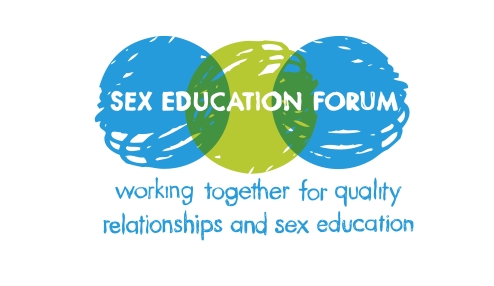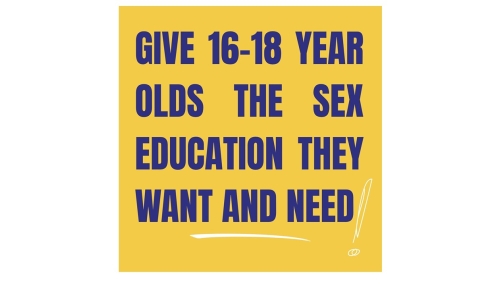Women’s Aid recently carried out research, surveying both young adults (18-24 years old) and school-aged children (KS2-4) on their understanding of relationships and consent. The study pointed to some troubling gaps in understanding:
-
Only 47% of children in Key Stage 2 could select the correct definition for ‘unsafe relationships’ and 61% knew the correct definition of ‘unwanted touch’.
-
Almost a quarter of the young people aged 18-25 years disagreed or strongly disagreed with this statement, ‘You should always have consent from your partner to have sex when you are in a relationship’.
-
26% thought that there should always be one more dominant person in a relationship.
-
Over 30% thought that ‘you should always try to make your partner happy even if you do not feel comfortable doing so’.
For me these findings highlight the importance of tackling the concept of consent and what it means to be in a healthy relationship from the earliest of opportunities. There is no reason not to grapple with the concept of consent as part of primary Relationships Education, yet it is unclear how confidently and routinely this is included in the primary curriculum.
Consent is complex and nuanced, even for adults. To begin with, there are so many elements about the context to consider before even asking for or giving consent (but that’s a separate blog!). Then, it not only relies on the person giving consent to understand their own boundaries and rights, but on them having the confidence to express those boundaries. Furthermore, it also requires multiple different skills: negotiation, understanding the context, reading body language and facial expressions.
Like any set of skills they take time to develop and need to be regularly practiced in different contexts in safe, controlled, age-appropriate ways, before they become relevant to sexual relationships. For our younger children, we can teach children to ask before they touch others, what an enthusiastic ‘yes’ sounds and looks like and how to say ‘no’ in a firm, clear way. We can practice finding out more information to help us make a decision about whether we want to do something e.g. if we’re invited to a birthday party, where is it going to be? What activities will you be doing?
Another consideration is that our understanding of consent is influenced from a young age by so many factors. For example, the recent Women’s Aid research also demonstrated the damaging impact of watching pornography and social media content which featured hatred towards women and girls, on young people’s understanding of gender stereotypes; whether it was important to talk about sexual readiness with a partner; and what coercive and controlling behaviour looks like. This is worrying because we know that a growing number of children have their own devices in key stage 2 and have access to devices much earlier*. Even if young people do not have their own device, or if access and content consumption is well monitored, children will still be exposed to other children’s views, shaped by their online experiences. A recent report by the Children’s Commissioner** also found that 10% of children had seen pornography by age 9.
All of this speaks to the need to start work on educating children about what healthy relationships are and challenging gender stereotypes early, as this impacts on their understanding of consent. Also, research consistently shows that education is most effective when carried out by schools and parents so it's important we share with parents how we are teaching about consent and why, so that they can continue these conversations at home.
Schools and families can begin by talking about privacy and safe touch in different types of relationships and contexts. We can teach about good, bad and unwanted touch and what to do if we feel unsafe. We can model clear boundaries around privacy and touch in school, and send clear messages about this through our policies and interactions throughout the day. Many schools have a whole-school approach which includes 'Respect’ as part of their school ethos, and teaching children about their Rights, which alongside confident teaching of Relationships Education, helps children to practice this value in their daily interactions at school. We can teach young children that they own their own bodies and that they can say ‘no’ to touch that they don’t want***, skills they can then be encouraged to practice with friends and relatives. Giving children lots of opportunities to explore their own likes and dislikes and how to communicate these, is also vital so they experience their own voices being valued and develop confidence to share their boundaries.
The incorporation of consent education in the curriculum at an early stage is of utmost importance. Consent education should start early and be included beyond the context of sex, being integrated sequentially at all stages rather than treating it as a checklist exercise. When the reality of sex and relationships is complex, introducing the nuance of consent at such a late stage means it is often too little too late to give young people the knowledge they need and deserve
Says Vidyut Chattopadhyay from Sexpression:UK a near-peer, independent, student-led UK charity with the goal of empowering young people to make decisions about relationships and sex by running informal and comprehensive RSHE in the community.
It’s clear that the skills teenagers and young adults need to navigate healthy (sexual) relationships and build their understanding of consent take time and practice to develop. Surely the best way to respond to the startling research from Women’s aid is to teach the foundations of healthy relationships earlier and with confidence.
How confident do you as an educator feel in this?
Do you feel your colleagues and school community are behind you when teaching the foundations of healthy relationships?
Further information and support
We can support you with our webinar: Teaching the Foundations: Consent, touch and privacy on the 5th February. Find out more here.
Read the report by Women's Aid here.
Blog by Nicky Waring, RSE Trainer & Specialist
References
*Six in ten (62%) participants reported having their own smartphone in KS2. By KS3, this jumped to more than nine in ten (96%) and continued to rise across Key Stages. Women’s Aid. (2023). Influencers and Attitudes: How will the next generation understand domestic abuse? Bristol: Women’s Aid.
** Evidence on pornography’s influence on harmful sexual behaviour among children (May 2023) Children's Commissioner report.
*** Of course, children need to understand the caveats around this, for example that there are occasions that they may not want a specific good touch, but it is necessary to keep them safe and healthy e.g. getting an injection, being pulled back from stepping in to a busy road.




Share